“Fall back, and spring forward” is a phrase that is commonly heard in the United States in November and March as citizens try and remember which way they are supposed to adjust their clocks. Some people loathe when they have to turn their clocks back in the fall. Humans, of course, cannot actually alter how long the sun is above the horizon by changing the numbers on their timepieces, but everyone and their mother swears that the days seems much shorter when daylight saving time comes to an end. Even though there are the same number of hours of sunlight, the fact that the clocks say the sun is setting an hour earlier makes it seem like nighttime is longer when daylight saving time ends. As such, many people hate turning their clocks back. That said, the end of daylight saving time can actually be a good thing. There are a variety of ways to take advantage of it and enjoy the shift in time. Here are seven reasons to love the end of daylight saving time.
The extra hour rocks.
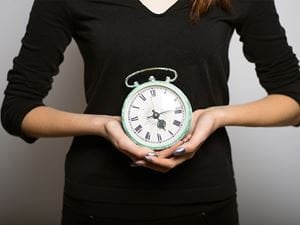
shutterstock.com
When you initially fall back over Saturday night, you gain an extra hour on Sunday, and most people take advantage of this phenomenon. If you and your friends are going out Saturday evening, you can stay out for an extra hour without feeling guilty or paying for it the next morning. You could also do what most people do and enjoy an extra hour of sleep on Saturday night. When they shift from daylight saving time to normal time, most people go to bed when they typically would but set their clocks back an hour right before they go to sleep. They leave their alarms set for their usual time and simply take advantage of the time change to get some extra shut eye. In the event that your waking time did not shift with the clocks due to either an extremely accurate internal clock or the presence of creatures that do not understand the time change, like dogs or very small children, you still get an extra hour on Sunday. You may not get to use it to sleep, but you still have an extra hour in your day when you can do something productive or simply not feel guilty about watching one more episode of your favorite TV show.
Lighter mornings make getting up less painful.
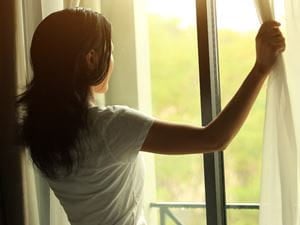
Shutterstock.com
When an alarm clock goes off in movies or TV shows, people generally smack at it and groan painfully. This is one instance where fiction mirrors real life with almost humorous accuracy. Most people do, after all, fumble for the snooze button and moan unhappily when it is time to wake up in the morning. As most people do not get enough sleep, it is no surprise that almost everyone despises mornings. Chronic sleep deprivation makes it difficult to get out of bed in the morning, and this already challenging task is made even harder when it is still dark in the mornings. To your body, dark skies mean sleep. This is why you sometimes feel like you need an extra cup of coffee in the morning during the winter. When you fall back, however, the sun rises earlier. This means that you are more likely to be getting up when it is light outside than in the dark. This is not necessarily enough to make mornings pleasant, but it does make them less painful.
Your sleep cycle becomes more natural.
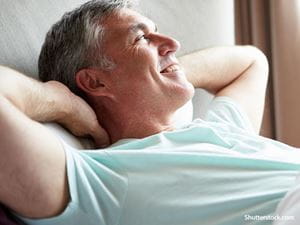
Most people in the developed world do not get enough sleep. This should be news to no one who looks around at their coworkers or high school aged children. Everyone has dark bags under their eyes, yawns often, complains about being tired and guards their caffeinated beverage of choice like an angry wolverine. Smartphones and the rise of the internet mean that many people are getting too little sleep because of unhealthy choices they make. Contrary to what teenagers would make you think, starting a Netflix binge watch at midnight is not actually a good idea. Even adults tend to have terrible sleeping habits. The average bedtime for American adults is between 11:00 p.m. and 12:00 a.m. Most people set their alarms for around 6:30 a.m. but will cheerfully sleep until 8:00 a.m. or 9:00 a.m. on weekends. When the clocks turn back, your body is oblivious to the time change. As such, when 10:00 p.m. rolls around, your eyes get heavy, and you struggle to focus on your Facebook feed. Assuming you listen to your body and go to bed, you will actually be getting more sleep since you likely set your alarm to the same time. The shift in time will also align your body with what is a more natural sleep-wake rhythm since you will be getting up at roughly the same time the sun rises and spending fewer hours awake in the dark at night.
The afternoon slump is less problematic.

Shutterstock.com
The day seems to get warmer faster.
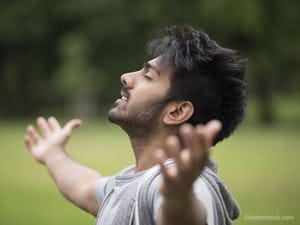
The end of daylight saving time comes with colder days. That is the simple and unfortunate fact. The days, however, feel warmer than they would if daylight saving time continued. Since the sun rises earlier, it has been shining and warming up the air and ground for longer by the time you finally get outside. If you take your lunch break outside at the same time every day, you will likely find that the first few days following the end of daylight saving time are warmer than the last few days of daylight saving time. If you are stuck inside, the slightly warmer days do you little good during the week, but you will be able to take advantage of them on weekends. After all, it is unlikely that you are out the door and ready to enjoy the sun at the crack of dawn.
The morning commute is safer.
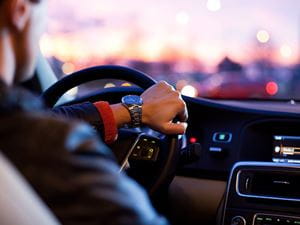
Pixabay
Take a bunch of especially dumb zombies and strap them to several tons of steel filled with burning rocket fuel. Now pack a large number of those machines together in a small area and tick off roughly half of the zombies. Leave the other half oblivious. Give the zombies the ability to swear at each other in a variety of languages, and you have a pretty good replica of the pre-caffeine morning commute.
The end of daylight saving time cannot save you from gridlock, but it can give you the ability to better protect yourself from other drivers. More light in the morning means more awake brains and better lines of sight for drivers. This combination means that people are more aware of their environments and less likely to rear-end you because they were thinking longingly about their pillow or nodding off over the wheel.
Earlier dinners mean happier bodies.

shutterstock.com
Whether you love or hate the fact that you have to change your clocks twice a year, your brain is at least aware that your routine is going to be off by an hour. Your body, however, has no idea that daylight saving time has stopped or started. It has no concept of what daylight saving time even is in the first place. It does, however, know what times it is supposed to be given food. Your breakfast may naturally be pushed back an hour by a later waking time, but your body is going to demand lunch and dinner at similar times regardless of the time change. Assuming you listen to your body, you will be eating dinner earlier when daylight saving time ends. This is actually good for your health all around. Eating too close to bedtime interferes with your sleep, can cause digestive problems and makes you more likely to gain weight. Eating a little earlier may mean you need to simplify your meals slightly, but your body is likely to thank you for it.
Remembering to reset your clocks twice a year can be frustrating, and very few people like it when the day suddenly seems much shorter than it did a week ago. That said, there are a number of reasons to enjoy the end of daylight saving time. You may feel like your days have gotten shorter, but the shift in time makes it so that your days are likely healthier. Take advantage of your body’s commitment to routines, and turn an irritating cultural quirk into an opportunity to form healthy habits that will last all year.
